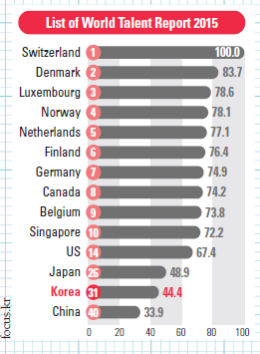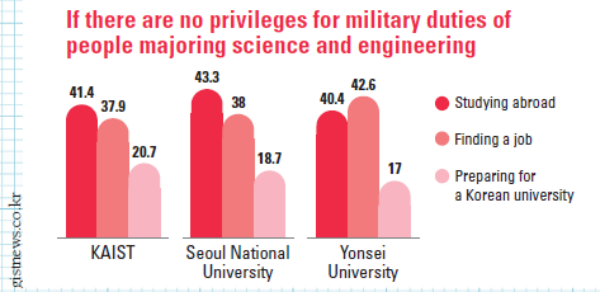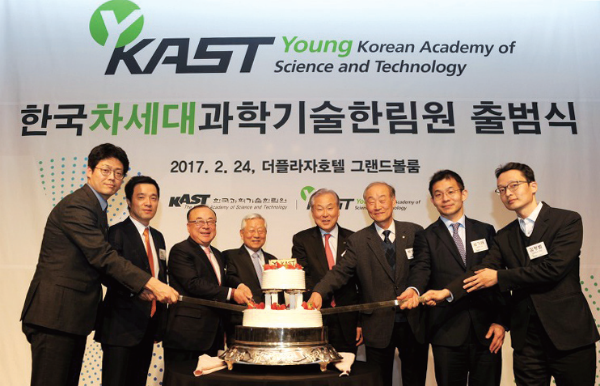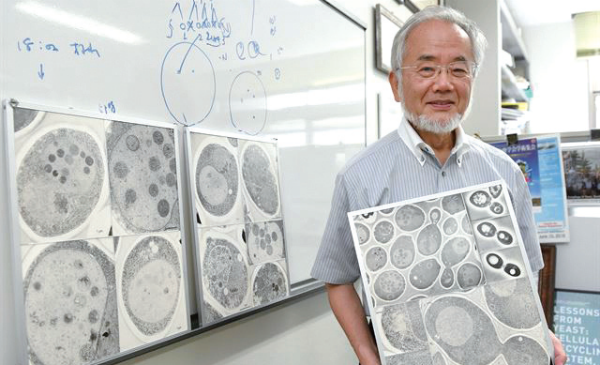The Korean Government designated April 21st as the Day of Science. Great scientific discovery such as heliocentric theory is usually found by people who have a strong curiosity for something that others do not care about and spend a lot of time studying. Scientific development in basic science is now very important in the era of the Fourth Industrial Revolution, the revolution achieved by developing Information and Communication Technologies (ICT), since it should be applied to technologies. Korea, however, still has several problems in supporting basic science, making a ‘brain drain’ in the field of science a really serious issue. Therefore, the Sungkyun Times (SKT) now introduces the importance of basic science, factors that are causing a brain drain of our scientists, and the efforts (and foreign cases) to improve this phenomenon.
The Necessity of Basic Science and Crisis of Korea
Importance of Basic Science
Basic science is scientific research improving the understanding or expectations of natural phenomena, or research of natural science without considering technology alignment. Most useful products are supported by this understanding of natural and biological phenomena achieved by studying basic science. For example, diverse industries such as artificial intelligence, self-driving cars, and drones, need basic science before using applied science. Scientific experts say, “It is necessary to expand investment in basic science and develop scientific techniques for the Fourth Industrial Revolution.” No advanced nation across the globe is less developed in basic science than Korea, and it is being left further behind in this progress. Recently, some presidential candidates acknowledged its importance and insisted pledges related to it. One of the 19th Presidential election candidates, An Hee-Jung, said, “Short termism is harmful to basic science, so I will minimize research task evaluation and guarantee scientists’ freedom to choose research topics on their own.” Korea, however, is still experiencing a serious brain drain of scientists due to several drawbacks in this field.
Brain Drain of Scientists in Korea
A ‘brain drain’ refers to the emigration of highly educated or highly skilled human resources from home to other countries. It hinders the raising of national power since securing an outstanding workforce is an integral part of national competitiveness. According to the World Talent Report 2015 released by the International Institute for Management Development (IMD), Korea’s ability to secure talented people ranks 31st out of 61 investigated countries. In addition, Korea is the 18th country which has lost its competitiveness due to this brain drain and it is one of the biggest factors contributing to its decline. According to the Science and Technology Indicators issued by the National Science Foundation (NSF), almost 60% of Koreans who got doctorate degrees in science and engineering fields in the United States (US) responded that they wanted to stay abroad after getting their degree.

Main Causes of the Brain Drain in Korea
Avoidance of Natural Science and Engineering

According to the report ‘the status of dropouts in public universities’ released by the Ministry of Education, 5518 students dropped out of majors belonging to science and engineering, in 2015. The figure almost reached 20,000 including private university students, and even Seoul National University has 100 dropouts every year. Most of these students transfer to the medical school because they could earn higher social status or a more stable payment by graduating there. On the other hand, they are reluctant to graduate from a major in natural science and engineering due to the lack of jobs, poor working environments, and existent hierarchy in the workplace. Furthermore, this tendency became aggravated when the Ministry of National Defense announced that they will abolish privileges for military duties of people majoring in science and engineering until 2023. This is because the privileges have encouraged Korean researchers to stay and study in Korea by exempting them from military service. This system has helped small businesses make a profit of an estimated 130 billion by employing research specialists and 70% of companies receive help for strengthening techniques. After the announcement, however, eight out of ten science and engineering students in several major universities said they will give up on going to graduate school, and four out of ten students said they will go abroad to progress their study of basic science.
Poor Research Environment
A survey conducted with 1005 people who acquired doctorate degrees in science and engineering fields by the Biological Research Information Center (BRIC) showed that 47% of them will try to find a job overseas. The reason why 42% of them emigrate to other countries is that the overall research environment, including aspects such as improved facilities, is better than Korea. Meanwhile, support given to the basic research in universities is reducing, although 61% of doctorates study in science and engineering at Korean universities. University only accounts for 10% of research and development investment while the average for an OECD country is 18%. This makes professors prefer to acquire support funds at first and divide them with other fellow workers. Moreover, Korean scientists have to satisfy difficult conditions imposed by the government concerning topic, terms, and method of the research, in order to receive research expenses. This is because the government cuts off the financial support or even withdraws support funds if they cannot pass the interim check. This makes it hard for scientists to do their own study, unlike in other countries.
Lack of Independence in Research
Most of the Nobel Prize winners in science have made their great achievements when they started researching after being curious about something which was far from other scientists’ interests and then studied for a long time. Korean scientists, however, concentrate only on the subject that can be commercialized or useful, and this is because short termism is even rampant in conducting a scientific project. Therefore, although the Korean governmental research and development budget accounts for 4.29% of the gross domestic product (GDP) which is the largest figure in the world, scientific researchers have a tendency to conduct short term and commercial studies. The US, however, makes a longer-term investment in basic science and allows scientists to decide their own subject without interference of the government. On the other hand, researchers in Korea find it hard to get their next research expenses if they cannot achieve the project’s goal. This makes scientists concentrate more on projects that are possible to succeed with rather than a more challenging one.
Efforts to Prevent the Brain Drain
The US is the number one country across the world in terms of research into basic science. In other words, western countries initially established and developed basic science but recently Asian countries, especially Korea, China, and Japan, have become interested in it.
Korea
There was an inauguration ceremony for the “Young Korean Academy of Science and Technology (Y-KAST)” on February 24th, 2017. This institute will help Korean scientists under the age of 45 to share scientific knowledge with members of the Young Academy of Science. Young researchers will also have the opportunity to discuss and be connected by establishing a network with the world’s top scientists. It plans to hold joint workshops with the Young Academy of Japan this March, and a symposium with members of the Global Young Academy this November. Furthermore, the Korean government will start “Supporting Business for Young Researchers” this year. It aims to ensure opportunities and encourage studies of young researchers under the age of 39 who are teaching in universities, so they can pursue a research subject that they want without any interference. 1000 researchers can receive up to 30 million during the course of one to five years. These changes show that efforts are being made to improve the poor research environment in Korea by investing more and avoiding short termism.

China
The state President of China, Xi Jinping, plans for China to catch up with leading countries in science in technology, such as the US, before 2049. When the science journal Nature announced the list of the 100 fast-growing research institutes and universities in the past four years, the top nine organizations were from China. They even took second place in the number of research papers, accounting for about 20% of the world's research papers last year. As a result, they finally landed on the Moon and hold 20% of world's genome database. The Chinese central government also developed the ‘Thousand Talents Program’ that was promoted in 2008 to recruit highly skilled scientists to China. Foreign researchers who registered to this program will receive up to a 1 billion for research grants and living expenses. This program has attracted about 5800 talented foreign scientists until now and they study basic science or start businesses in emerging industries in China.
Japan
Japan has produced Nobel Award winners in science for the third consecutive year. This was made possible since there are three major differences from Korea to develop basic science. First, the Japanese Government made a bold and long-term investment to basic science, 100 years ago. They have invested almost 1.9 trillion which is 10 times higher than that of Korea, as of 2014, and companies also invested 1.3 trillion. They also support postdoctoral researchers who work at laboratories after earning doctorates for two or three years, while there are many temporary employees in Korea, due to the lack of understanding regarding postdoctoral study here. Secondly, Japan promotes scientific investigation with advanced countries to share their skills and knowledge, but the Korean Government administers most of its budget to domestic studies in order to advertise independent institutions. Finally, the craftsmanship of Japan plays a role in the advancement of basic science. For instance, Ohsumi Yoshinori, who won the Nobel Prize in Medicine last year, had studied ‘mechanisms for autophagy’ for 50 years. In Korea, however, scientists are pressed to make achievements more quickly and have to reveal their performance and results every year.

Chairman of the Max Planck Institute in Germany, Peter Gruss, said that there would be no ‘Science Korea’ in the future without the development of basic science. If Korea is not interested in studying basic science anymore, it will be left behind in the world market of the Fourth Industrial Revolution. This is crucial for Korea and it should realize the importance of basic science and prevent science and engineering talent from emigrating to other countries. Of course, the efforts to improve poor research environments and remove the preoccupation with short-term performances should also be made by the government to help scientists concentrate on their own research. Once these things have been satisfied, Korea will be able to continue to grow to its full potential in basic science and application techniques.
